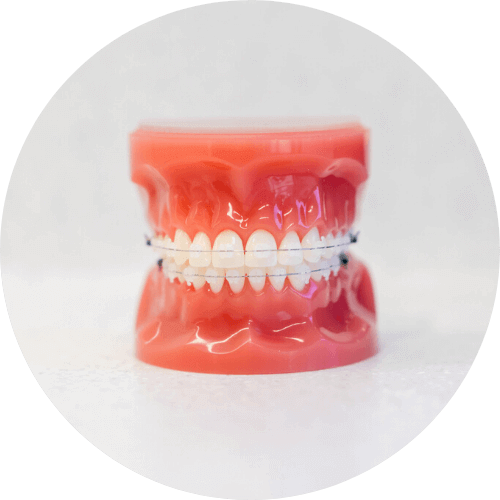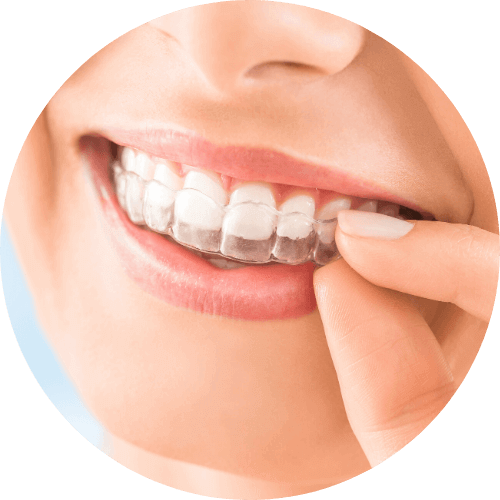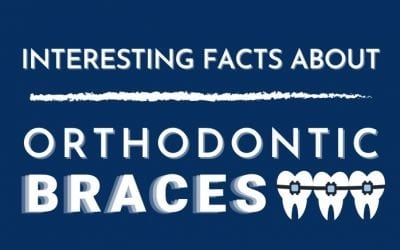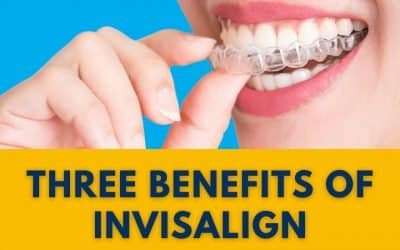Do You Need a Retainer After Orthodontic Treatment?
Does everyone need retainers after orthodontic treatment?
This is a popular question with a simple answer: Yes, if you had orthodontic treatment then you will need a retainer. This is because your braces (or clear aligners) straighten your teeth by pulling them into their correct location, and they achieve this by loosening the ligaments and connective tissue between the roots of your teeth, the gums, and the jaws. When the appliances are removed, these fibrous connections are still loose, meaning teeth are at high risk of moving back to where they came from and undoing all your good work. A retainer will ensure your teeth stay put, reducing any risk of movement.

Benefits of retainers after orthodontic treatment
Retainers after orthodontic treatment give your pearly whites support in their time of need, helping them settle into their new home. In fact, wearing retainers is considered the most important part of orthodontic treatment. Luckily, wearing and taking care of the retainers are a lot simpler than wearing or taking care of braces themselves.
Which retainer is better after orthodontic treatment?
There are three main types of retainers, and which one you get depends on what your orthodontist recommends and your personal preference.
Hawley retainers
Hawley retainers, or plate retainers, are removable retainers that have an acrylic base shaped to the roof of your mouth. They are very durable (they’ll last for years if you treat them right), and they allow your upper and lower teeth to settle into their new bite. However, some patients find that they are bulky, which may affect their speech and the sensation of swallowing and can irritate their cheeks. Much like when you first got braces, your mouth and speech will adjust to the new sensations. Hawley retainers are also more visually noticeable than some counterparts.

wePermanent or fixed retainers
Permanent retainers involve having a wire bonded to your teeth. This wire is cemented on the backside of your teeth (near the tongue) and can be recommended for those with more dramatic corrections. They’re a great option because you don’t have to worry about putting them back in, but they can make dental hygiene more complicated as you need to learn how to floss and clean around the fixed retainers. Also, the fixed retainers can break over time, therefore it is important you get the fixed retainers checked by your dentist or orthodontist every six months.
Clear retainers
Clear retainers are very popular today for the same reason Invisalign and other clear aligner treatments are. Their transparency makes them a preferred aesthetic choice for many, which often aids treatment as people are more likely to wear them. As a VFR (vacuum formed retainer) they’re moulded to your teeth to hold them in place. They require more care than other types of retainers as they are made from a more malleable plastic, and often will need more frequent replacements. Care must be taken such as not exposing them to high temperatures (like putting them in your dishwasher or washing them in very hot water), not bending or twisting the retainers, and will need to be regularly cleaned.
How long do you need to wear retainers after orthodontic treatment?
After your braces come off your teeth can continue to move. For many, their teeth will continue to move their whole life – teeth movement is part of the aging process.
As such it’s not uncommon that you’ll need to wear your retainers for years, if not decades.
While this sounds like a big ask, it’s not as tough as it sounds. Depending on the complexity of your case and the type of retainers given to you, your orthodontist will recommend how often you need to wear your retainers. For example, your orthodontist may recommend you wear your retainers 22 hours per day every day after your braces are removed. Then after around three months, you will then only have to wear your retainers every night while you sleep. Eventually, you will only have to wear your retainers two to three nights a week. It is important you follow the direction of your orthodontist. Just like brushing your teeth, wearing retainers will become second nature and it is something you will get used to.
Is it OK not to wear retainers after orthodontic treatment?
Not wearing a retainer after orthodontic treatment can cause your teeth to move again and can affect your smile. Teeth movement changes your teeth/gum/jaw structure substantially and it will take time for your teeth to solidify in their new position. If you don’t wear your retainers, your teeth will move and might end up looking worse than before. You may need to start a new orthodontic treatment again!
When you get your braces out, your orthodontist will lay out the values of using your retainer clearly. It’s a long-term effort, but you’ll see long-term results. And since your retainers will literally do all the work for you while you sleep, why not make use of it?
To read the original article, click here.
DISCLAIMER:
The content has been made available for informational and educational purposes only. Central Coast Orthodontics does not make any representation or warranties with respect to the accuracy, applicability, fitness, or completeness of the content.
The content is not intended to be a substitute for professional personal diagnosis or treatment. Always seek the advice of your dentist or another qualified health provider with any questions you may have regarding a dental or medical condition. Never disregard professional advice or delay seeking it because of something you have read or seen on the Site.
Learn More About
Related Articles
Unfinished Smiles Welcome Here – We’ll Pick Up Where You Left Off
Is Smile Direct Club’s insolvency leaving your teeth realignment process stranded? As Invisalign Diamond Plus providers…
Interesting Facts About Orthodontic Braces
Wanting to get orthodontic braces but feeling unsure because you don't have knowledge about its...
Three Benefits of Invisalign
Did you know that aside from being an option for straightening your teeth, there are also benefits...
Metal Braces: Does This Traditional Dental Technology Have a Future?
Of all the medical professions, dentistry has always generated the most fear and continues to;...







